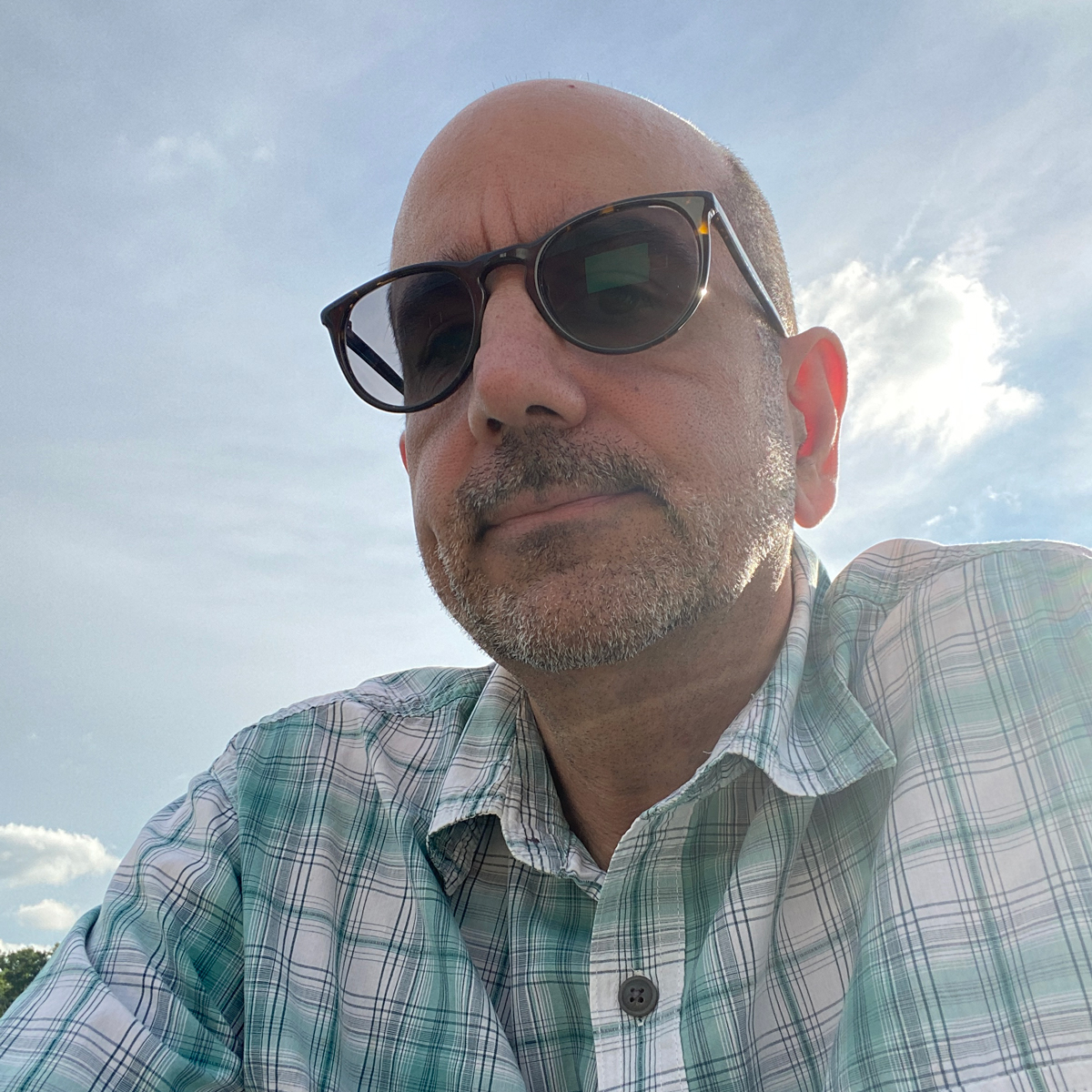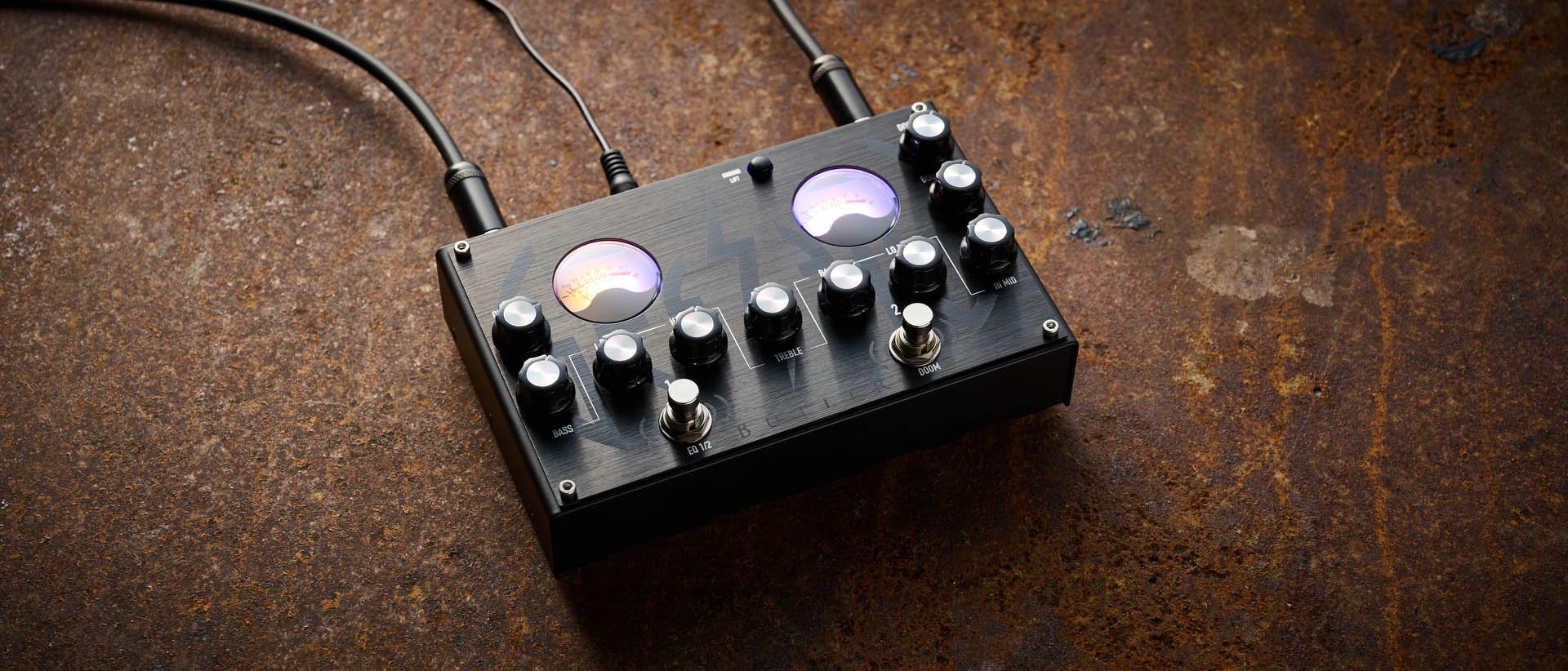Alter Bridge: "All I want to do is learn new guitar lines on Instagram and get inspired by other players - it’s like I’m 21 years old again"
Myles Kennedy and Mark Tremonti discuss solo projects, dealing with such a large creative output and their latest album Walk The Sky
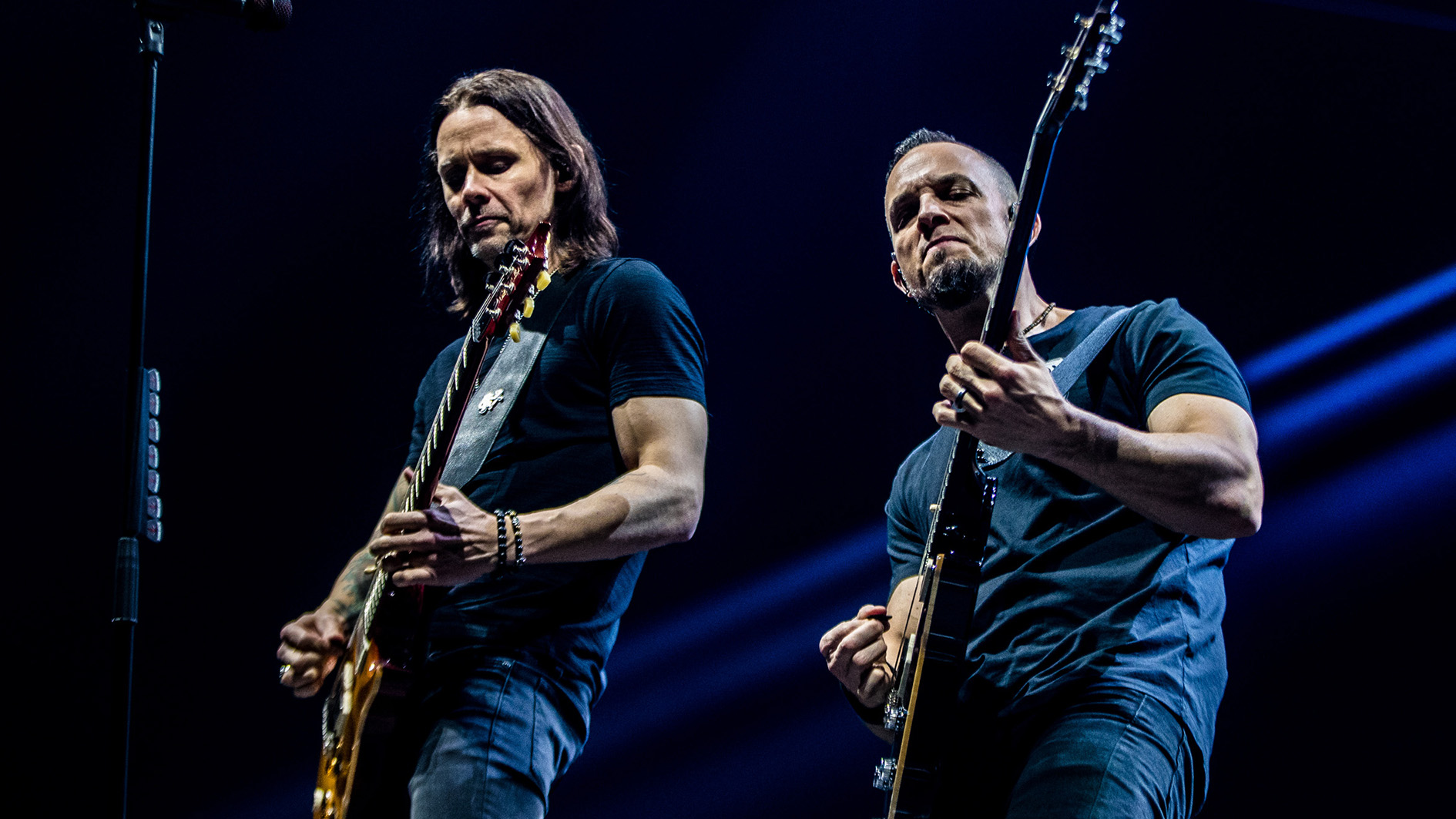
It’s been roughly 16 years since Alter Bridge first rose from the ashes of Creed’s initial incineration, and in that time the group has proven itself to be nothing less than a continually dominant force in the modern rock world.
Guitarist Mark Tremonti and singer/guitarist Myles Kennedy, the creative duo at Alter Bridge’s helm, are among the most prolific musicians around, evidenced by the sheer volume of output between them in the past 16 years.
With Alter Bridge, Tremonti and Kennedy have issued six studio albums, four live albums and a handful of box sets, EPs and assorted other goodies; Kennedy handled lead vocals for three Slash albums and issued his first solo album, The Year of the Tiger, in 2018; Tremonti has released four albums under the solo project that bears his name, as well as one science-fiction novel, A Dying Machine.
That’s 14 studio albums, four live albums and one book in 16 years - a tremendous outpouring of music and imagination by any rocker’s standards.
But it’s not just the sheer numbers that make what Tremonti and Kennedy do so impressive - it’s the fact that the quality of their music continues to rise with each new offering, and that their fans are among the most impassioned and loyal in all of rockdom.
The result of it all is that Alter Bridge have reached a point where they can almost do no wrong - where each new album is met with fervent enthusiasm by their fans and praise by critics, each new video racks up impressive numbers of views (usually in the million-plus range), and the group continues to tour the world regularly and have incredible experiences like their October 2017 shows at the Royal Albert Hall alongside the 52-piece Parallax Orchestra.
“I think we all recognize that that was probably the two best nights we’ve ever had onstage,” says Tremonti, who was named Guitarist of the Decade in the January 2020 issue of Guitar World.
All the latest guitar news, interviews, lessons, reviews, deals and more, direct to your inbox!
It’s a great thing, to have that loyalty. We’re lucky, that’s for sure
Myles Kennedy
“Unless you’ve experienced something like that, it’s hard to explain. When you’re onstage playing your songs the way you always do, and all of a sudden you have a 52-piece orchestra all around you and playing your songs along with you, it’s really an intense, emotional thing to be a part of.”
The point of all this is that things couldn’t be better for Alter Bridge right now - creatively and in terms of the trajectory of their career. And if the success of the group’s most recent album, Walk the Sky, is any indication, the group is going to be riding these rails for quite some time - partly due to Tremonti and Kennedy’s furiously creative nature and partly because their fans are so rabid and clamor for any new scrap of music they release, year after year after year.
“It’s a great thing, to have that loyalty,” says Kennedy, “and we’re very cognizant of that and never want to let our fans down, so we don’t phone in our records. Mark and I put a lot of time and energy into the writing process to make sure that we don’t let our fans down, and maybe that’s why they continue to stick with us through thick and thin. We’re lucky, that’s for sure.”
“I think we’ve built a trust with our fans,” Tremonti adds. “They know we’re not just going to fall asleep at the wheel and start putting out music that we don’t believe in.”
Guitar World had the pleasure of sitting down recently with Tremonti and Kennedy to discuss the making of Walk the Sky and find out what exactly it is that keeps either of them from ever taking a break.
Walk the Sky features 14 songs and clocks in at just over an hour - not quite as lengthy as some of your previous albums, but still generally longer than records by your peers. What’s the philosophy behind albums that top the hour-long mark?
Myles Kennedy: "To be completely honest about it, I think it has a lot to do with the fact that we have two main songwriters in the band, and we each get attached to our songs and want them to be on the album, and it’s hard to cut any of your favorite songs.
My original intention was to keep this record short, but we just couldn’t all get on the same page, so we ended up with 14 songs!
Myles Kennedy
"I think that’s why we continue to make these records that are as long as they are. Mark and I will write so much to prepare for an album, and the songs just become these children that we have a hard time letting go of.
"Believe me, there was a part of me that thought this should be either a 12-song record or even a 10-song record, especially with the way people listen to music these days and the fact that they have so many choices.
"So my original intention was to keep this record short, like under an hour, but when it came time to decide which songs would make the cut and which wouldn’t, we just couldn’t all get on the same page, so we ended up with 14 songs.” [Laughs]
Mark Tremonti: "I like to write albums; I don’t like one song to be a representation of what the band’s about. I like it to be a dynamic journey between 10 to 14 songs that have all kinds of moods. As an artist you always want to show all your sides."
Mark, you handled lead vocals on Forever Falling, the 10th song on the album, with Myles singing backup. How did that come about?
Tremonti: "Usually we like to write together, but for this album we wrote most of our songs separately. The record is pretty much half mine and half Myles’ in terms of who wrote what. At one point Elvis [producer Michael Baskette] came to me and said that people online were really wanting to hear me sing a song on the album, and Myles suggested Forever Falling, which is one of my favorite tracks.
"I immediately had to go into the studio and have them pitch the bass guitar down a whole step so I could track my guitars down a whole step and sing it. Myles ended up singing the chorus and I sing the verses and the bridge out - so we share the responsibility on that song."
You’ve been working with your producer Elvis pretty much exclusively for nearly 10 years now - he’s been behind the scenes on every Alter Bridge album since AB III, and has also worked on your solo albums and albums by Slash with Myles on lead vocals. What is it about Elvis that keeps you from working with other producers?
He’s the biggest Alter Bridge fan in the world
Mark Tremonti
Tremonti: "We’ve been together for so long, we couldn’t even consider any other producer at this point. When you write and record music, it’s a very personal thing - you really don’t even want other people in the studio watching you record. So inviting a new producer into the mix would be a drastic change for us.
"We know Elvis so well by now, and he just makes everything sound so good - he really is a master of sound. He draws the best performances out of us too - he pushes you, and if he doesn’t like something, he’ll let you know. But that’s what you need when you’re recording an album.
"He’s just a good vibe and gets us great sounds, and he’s just obsessed with us making the best record we possibly can - I think he’s the biggest Alter Bridge fan in the world."
Kennedy: "He’s kind of like our George Martin, and we trust him, which is really the biggest component of all this. He’s a fan of the band and he listens like a fan, and we know that we’re not working with someone who has a very different opinion of what we’re known for. Elvis understands what we’re about and he understands how to get the best out of us. He’s just like this one-stop-shop for us, and in that sense he’s perfect."
Mark, what guitars and amps are we hearing on Walk the Sky?

Tremonti: "You’re hearing the PRS MT 15 and the Cornford RK100 amp, which has always been one of my favorite amps and has become a staple on our recordings. It’s one of Elvis’s favorite amps too.
"I have a Fender Twin for some of the clean stuff, even though there really isn’t a ton of clean on this record. There’s also a Victory V40. Myles is just using a Diezel VH4 and a little Diezel Herbert amp. For guitars, I’m just using my signature PRS, and Myles is using some of his PRS guitars and he used some of Elvis’ Les Pauls, and a Tele and a Strat as well."
Let’s talk about your recent solo projects. Mark, in the summer of 2018 you issued the concept album A Dying Machine, your fourth under the Tremonti name - accompanied by a full-length sci-fi novel, co-written by you and well-known author John Shirley. How did it evolve into a book-and-record companion set?
It’s great to have someone to bounce ideas off of, and I found that person in John Shirley
Mark Tremonti
Tremonti: "Writing a book has always been one of my bucket-list items. I started writing a book maybe 10 years ago, and I got about halfway through it and quit. After that I came up with a few other plot lines that I was thinking of turning into books, but I never had the nerve or the time or the patience or the confidence to do it.
"So when this came along, I knew that I had thought so much about this story by creating this record that it was just the perfect template for me to write this book. So I started writing it, but I’m very slow when it comes to these things and I’m always second-guessing myself, so I thought it would be good to find a ghost writer to help push me along.
"It’s the same as when I write songs - I like to have Myles to help me because it’s hard to write in a vacuum. It’s great to have someone to bounce ideas off of, and I found that person in John Shirley. Once he got on board, imaginations just opened up, and it was probably the most artistically satisfying year of my life between the book and the concept record. I was just so happy that it got finished and that I could finally cross it off my list."
Do you consider yourself a heavy reader?
Tremonti: "Sometimes, definitely - but not so much in the last six months as we were so busy trying to get this album finished. After I wrote A Dying Machine I slowed down a bit on reading - I kind of got it out of my system.
"Right now I’m actually reading the book again because I’m shopping around for a publisher. I’ll be getting on the phone with a lot of people and talking about the story, and I just want to make sure I don’t forget any important details. But I’m enjoying going back through it again - it’s almost like listening to an old record."
Myles, you released your first solo album, Year of the Tiger, in March 2018. Is it true that you had attempted to write and record your first stab at a solo album years ago, and ended up scrapping it?
Just because you put a lot of time into something doesn’t mean it’s good or that you should burden your listeners with that
Myles Kennedy
Kennedy: "Yes - everything was scrapped with one exception, a song called Love Can Only Heal, which ended up on The Year of the Tiger. Everything else from that previous album is just sitting on a hard drive somewhere. And there are actually a few songs from that album that I wouldn’t mind revisiting at some point.
"The thing with that album is just that its shelf life had expired. By the time I could put it out, it had just sat there for so long and I just couldn’t relate to a lot of the material anymore and I just needed to start over."
Is that a familiar danger - songs sitting on the shelf too long?
Kennedy: "It happens a lot, actually, especially if you write all the time, as I tend to do; I always have a guitar in my hand, trying to create something. You just don’t have time to put it all out, and a lot of times something will just sit there. It’s kind of a drag, to be honest, the fact that you’ve got all these ideas that will never see the light of day.
Most people don’t realize that they’re only hearing a small percentage of what you’ve produced - and that’s kind of a bizarre concept. One thing that I do believe is that you can’t hit it out of the park every time, and just because you put a lot of time into something doesn’t mean it’s good or that you should burden your listeners with that. You really need to just pick out the tracks that best represent a moment in time and go with it."
You’re both so prolific when it comes to music. When was the last time you weren’t in the middle of writing or recording something?
Tremonti: "I can’t remember ever not being in the middle of something. [Laughs] At first it was a fight for survival because your career is just starting and you want to make sure you don’t fall into a sophomore slump, so you just keep working on new things and making everything better.
"I think by the time we got to the AB III album we realized we had a solid fan base and that we could probably keep doing this for as long as we’re able to put 100 percent into it. And that was probably the first time in my life that I felt confident about what I was doing. But at the same time, I never get to slow down - and I don’t want to."
Kennedy: "To be totally honest, it’s really hard for me to be away from it. When we finished up a press run back in September and I got home, I told myself that I wasn’t going to do any work - it had been a really busy year up to that point, and I was just going to power down and spend time with my family.
All I want to do is sit there and learn new lines and go on Instagram and try and get inspired by other players - it’s weird, almost like I’m 21 years old again
Myles Kennedy
"I tell myself the same thing every time there’s a break, and it lasts all of 24 hours. I just can’t do it. I wonder if one day I’ll look back and think of all the time I could have spent with my wife instead of with my guitar."
Myles, you turned 50 on November 27, 2019. Is getting older a concern for you, especially considering the frantic musical pace at which you’ve always moved?
Kennedy: "There is a part of me that continues to ask myself, well, how much time do I really have? And what else do I need to say while I’m here? And what other skills do I want to acquire on the guitar?
"And that’s become a real big thing for me of late - being immersed in guitar geekdom. All I want to do is sit there and play lead guitar and blues and learn new lines and go on Instagram and try and get inspired by other players - it’s weird, almost like I’m 21 years old again.
"And it’s because there’s that part of me that thinks, well, what will I do if something happens and suddenly my hands don’t work as well as they used to? I want to get this stuff done while I still have everything working well, and say it while I’m here."
With everything you’ve done up to this point, do you think you’ve already made your mark?
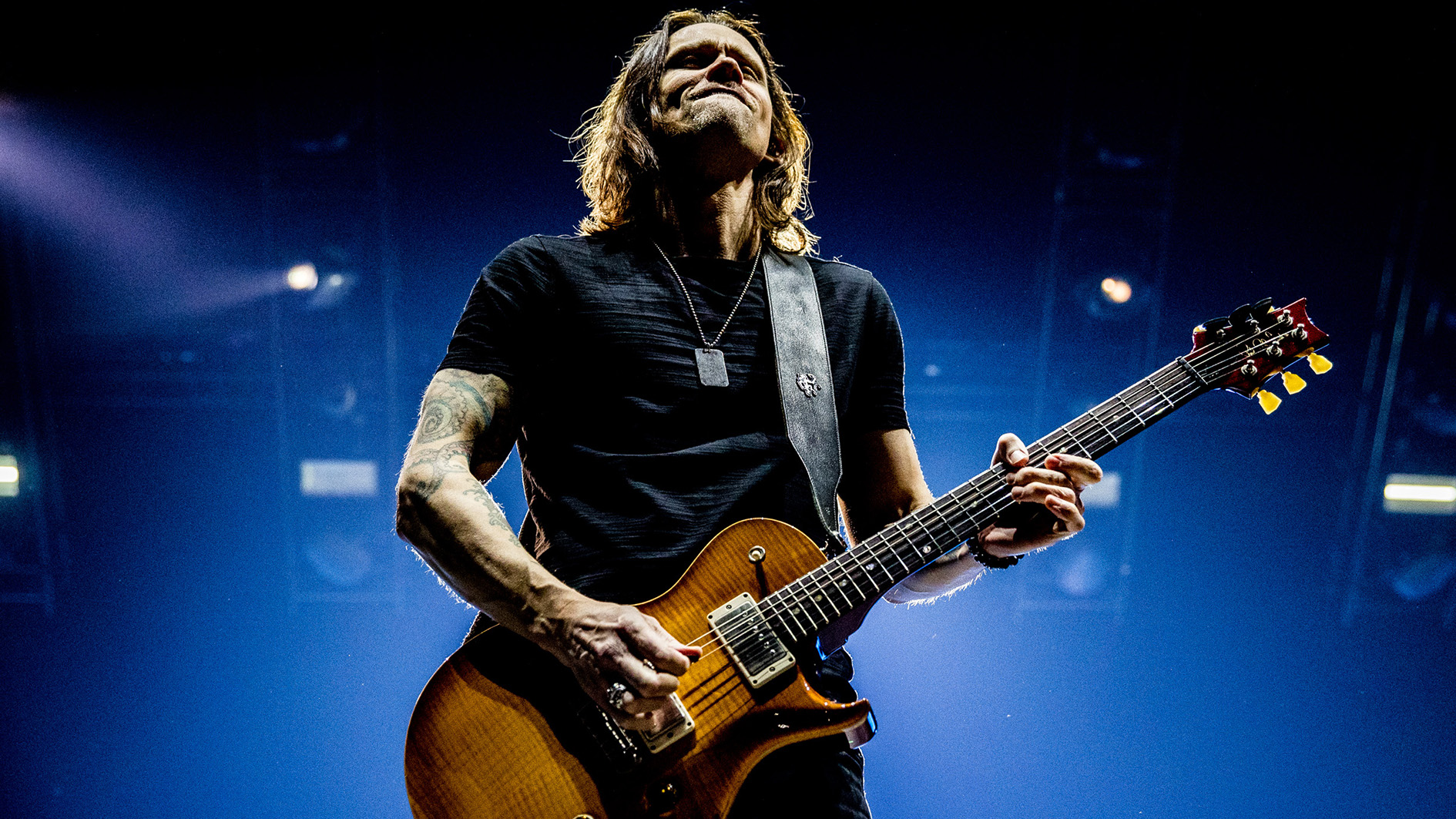
Kennedy: "No, I actually don’t think that way. I still feel like I’m trying to write that perfect song or play that perfect solo. When I look back at things I’ve done over the past decade, I’ve maybe come close at times, but I still feel like I’ve got work to do, and I always feel like I could have been better. That perfectionism can be a real bitch sometimes. But I think that having that drive is what keeps me going."
Myles, your career rotates between Alter Bridge, Slash’s solo projects and, of course, your own solo efforts. Are you always the same Myles Kennedy regardless of the project you’re working on?
Kennedy: "There are different little sides of me that I get to explore in the various projects, which is really great. I think that what I do with Alter Bridge is definitely different from what I do with Slash. And that goes for the music as well as the lyrics.
I’m really lucky because I’ve been able to carve out these little areas musically that I can step into and explore every few years
"Alter Bridge is more introspective, these songs that take you on some kind of journey; with Slash, it’s more from-the-hip and about not taking yourself too seriously. With my solo album, lyrically that was about as heavy as you’re gonna get.
"So these projects are all very different and I love that. If they were all similar it would become redundant, and not only would I get bored but I think the fans would get bored. I’m really lucky because I’ve been able to carve out these little areas musically that I can step into and explore every few years, then shut the door and go into the next room and do that for a while. It’s definitely a luxury."
Alter Bridge fans tend to be some of the most passionate, loyal and vocal in modern rock. It’s like you have an army behind you that never wavers or loses interest in what you’re doing.
Kennedy: "It’s a great thing, to have that loyalty, and we’re very aware of that and never want to let our fans down, so we don’t phone in our records. Mark and I put a lot of time and energy into the writing process to make sure that we don’t let our fanbase down, and maybe that’s why they continue to stick with us through thick and thin. We’re lucky, that’s for sure."
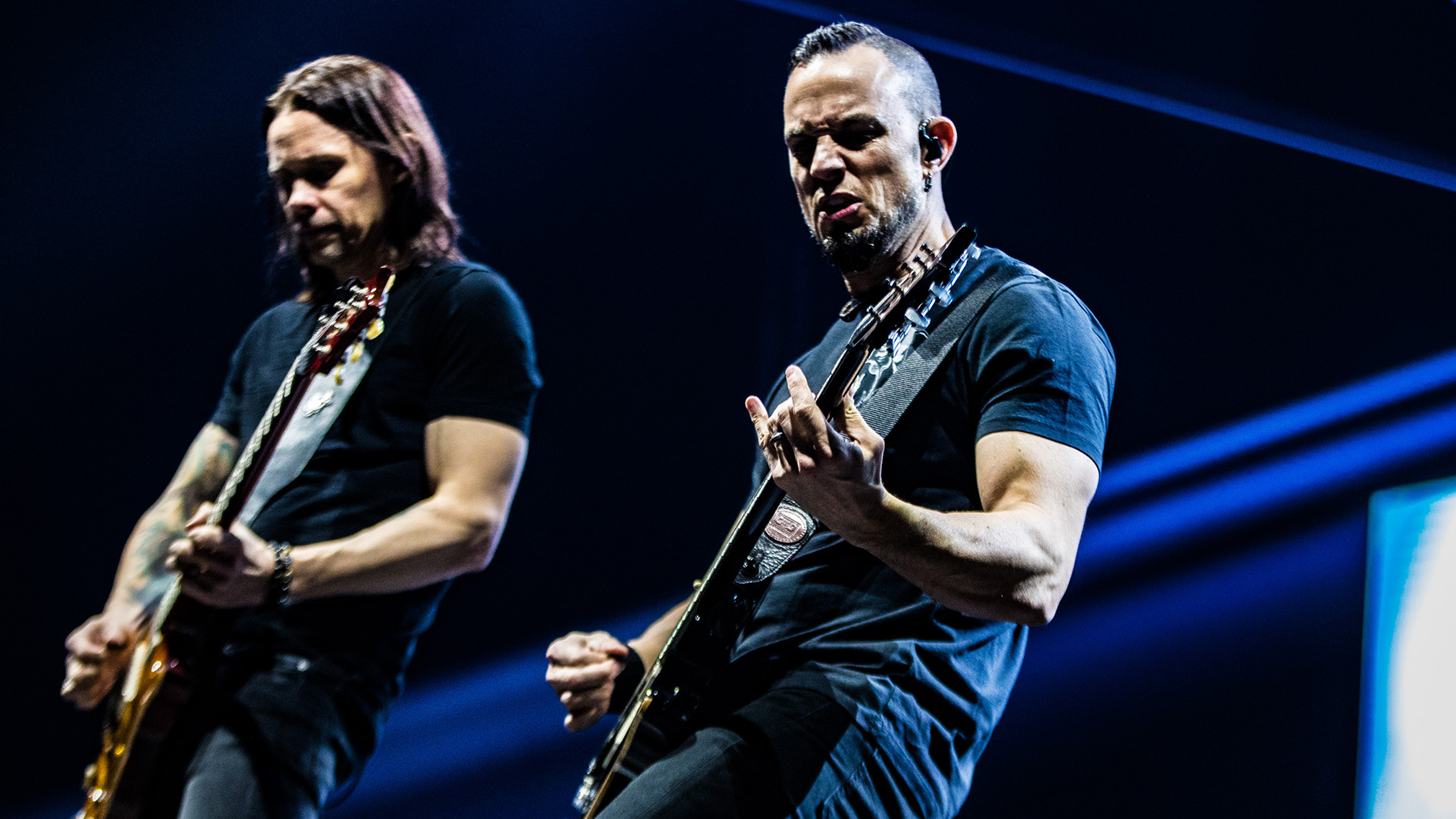
Tremonti: "Our fanbase is always growing too, but it’s never a huge leap - it’s more like a slow appreciation, like we’re just beating inflation. [Laughs] We know that if we have 100 fans on this song, then we’re gonna have 102 on the next one, and 103 after that.
"There’s never a big smash-hit where we’re suddenly selling out arenas all around the world. And I think we’ve built a trust with our fans - they know we’re not just going to fall asleep at the wheel and start putting out music we don’t believe in."
Between Alter Bridge and your various other projects, you guys have been enjoying some great success over the past decade. Do you remember the days when you were struggling?
Kennedy: "Oh, hell yeah. [Laughs] I can remember those days like it was yesterday. I remember when I was around 25, I got to a point where I was like, I don’t know if this is going to happen - and I wasn’t even sure of what I wanted to happen.
"I just knew that I wanted to play music. At the time I was teaching guitar and working in a music store, and on my lunch break every day I would go down the street to this little Chinese restaurant and buy a little box of rice for a dollar.
It was that 'one-for-all and all-for-one, us-against-the-world thing going on back then
"So I think back to those days, and even though I was unsure of the future at that point, there was a certain excitement in that and I’ll never forget it. In a way, I kind of miss that - that hunger.
"I remember once going to have some drinks with Jerry Harrison, the gentleman who produced the first Mayfield Four album, and he said something to me just after we finished that album that really stuck with me. He said that this is the time you’ll remember more than anything, and these will be the best days.
"And I remember thinking, Hmm, really? Driving around in a beat-up van and eating Top Ramen? Fast-forward 20-plus years later, and you know what? He was right. It was that 'one-for-all and all-for-one, us-against-the-world thing going on back then, and it was really special and exciting."
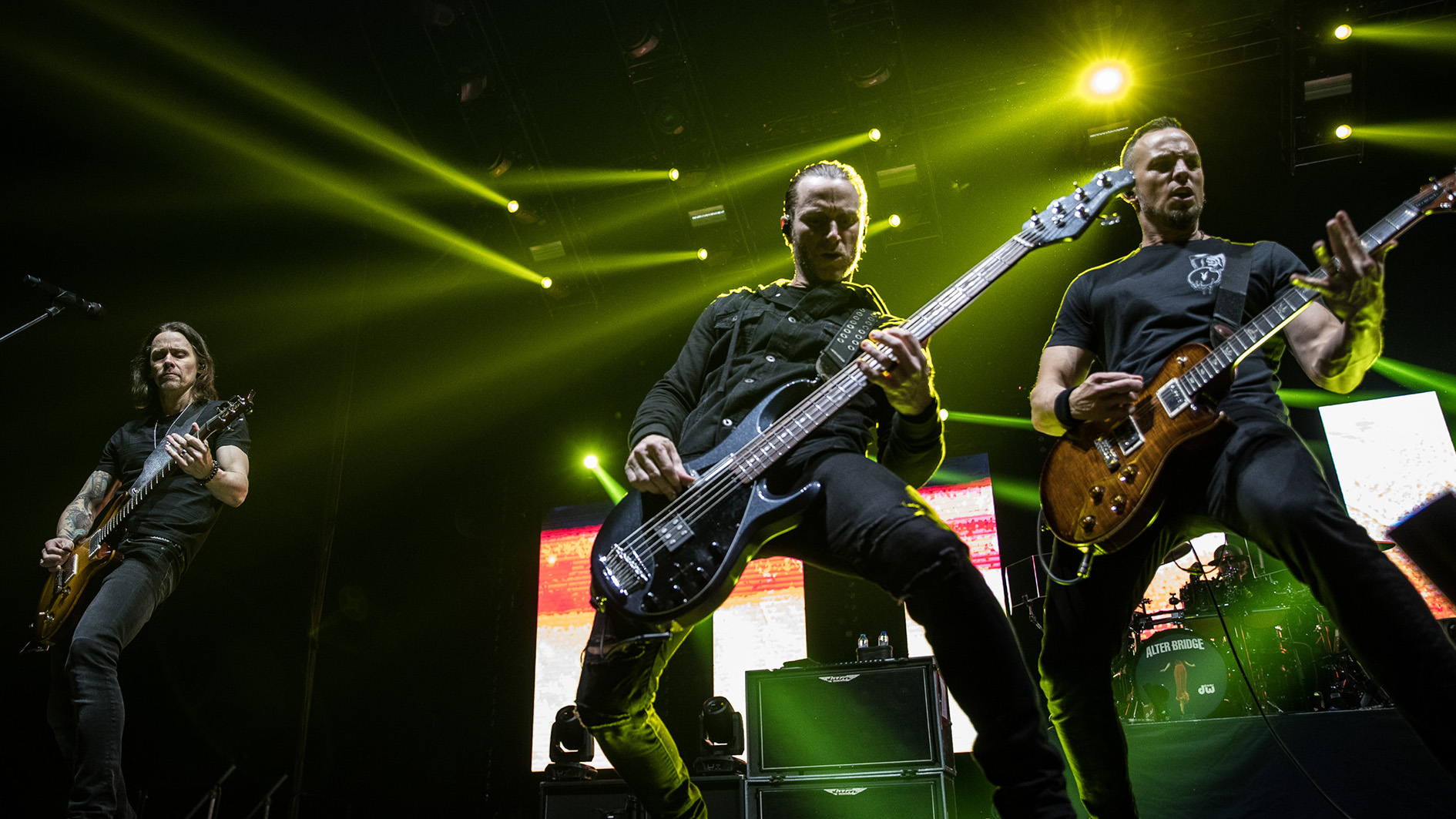
Tremonti: "When Creed ended, I think we all just thought that millions of Creed fans would automatically become Alter Bridge fans, but that wasn’t the case. We pretty much started from zero. If anything, the Creed thing kind of hurt us in the beginning, because a lot of people would say that we were just Creed with a different singer.
"Back then we had to buy ourselves out of some record deals, we changed managers a few times - we lived through a lot of stress back then.
"I remember back in the day we were asked to do all these lip-sync performances, and we’re just not doing that. People would tell us that we were going to lose our careers if we didn’t do stuff like that, but we didn’t care.
"A lot of times people think they have all the right answers, but we know to just keep our eye on the prize and keep writing the best songs we can. And as long as we keep doing that, our fans will always be there for us. One of our biggest achievements is having that fan base - nothing can harm us any more."
As a teenager, Jeff Kitts began his career in the mid ’80s as editor of an underground heavy metal fanzine in the bedroom of his parents’ house. From there he went on to write for countless rock and metal magazines around the world – including Circus, Hit Parader, Metal Maniacs, Rock Power and others – and in 1992 began working as an assistant editor at Guitar World. During his 27 years at Guitar World, Jeff served in multiple editorial capacities, including managing editor and executive editor before finally departing as editorial director in 2018. Jeff has authored several books and continues to write for Guitar World and other publications and teaches English full time in New Jersey. His first (and still favorite) guitar was a black Ibanez RG550.
